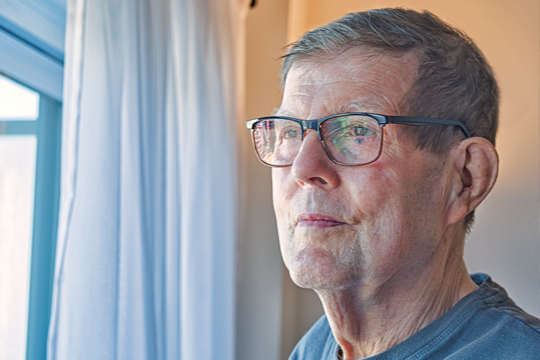
James D. Nicholson packed three careers into one. His knack for new challenges and ideas shows in his volunteering style, too.
Keeping up with the stages of James D. Nicholson’s career takes some focus. Over 42 years, he has had, as he puts it, “all sorts of experiences” — the kinds that have led him to a military base in Cold War-era Germany, shipyards and museum vaults.
It’s no surprise, then, that Nicholson joined the board of directors at the National Association of Federal Retirees in 2016, taking on yet another challenge, after completing a mandate as president of the Quebec branch. Neither is it surprising that he enthusiastically spreads the word about good ideas he thinks should be copied by other branches.
“He’s a facilitator,” says René Grenier, the current president of the Quebec branch, one of six in the province. “When you listen to him, it’s always interesting.”
Nicholson started volunteering with Federal Retirees in 2006, learning about the association’s role in obtaining better health care and pension conditions, and growing increasingly aware of the need to preserve those gains. Fifteen years later, he’s made that mission his own, as concerns rise that pension increases will not keep pace with inflation, which is now the highest it’s been in decades.
“Not everyone has a big pension, a lot of people are survivors who receive half of their partner’s pension,” Nicholson said. “Without indexation, it would be very difficult.”
Nicholson liked hearing first-hand about members’ preoccupations during his five years leading the Quebec branch. When he moved on to a national role, his successors continued to invite him to local board meetings, giving him a chance to keep an ear to the ground. Having a strong team ready to succeed him and help the branch thrive was particularly comforting, he said.
As a president, recruiting and retaining new members is a priority, and Nicholson regularly addressed soon-to-retire public servants. One of the places he would speak, and knows well, is Valcartier, a Canadian Armed Forces base north of Quebec City, where he served in the 1970s.
Nicholson started out in the military police and rose within the security branch of the armed forces, working in Quebec and Ontario. One of his postings was with the special investigation unit, which specialized in counterintelligence and criminal investigations and was later disbanded.
The experience he most enjoyed, though, happened overseas. In the 1980s, he became head of security at Baden- Soelligen, a Canadian Forces Base in what was then West Germany, created to meet Cold War NATO commitments. The job was demanding, but also gave his family — his wife, who is a teacher, and their two children — valued exposure to another country and culture.
“A career in the military, or even as a volunteer, is in very large part made possible by a partner,” he said. “My spouse, Denise, was present all along.”
Not long after, he left the forces to work for Chantier Davie Canada, helping handle military contracts at the country’s largest shipbuilder. Twelve years later, his return to public service took place in a completely different setting: the National Gallery of Canada.
There, as chief of security services, he oversaw the protection of the art collections, including pieces on loan to other institutions, and even got to experience a strike, a “rewarding, but difficult” experience, he recalled. He retired in 2005.
Even though his second mandate with the Federal Retirees board concludes in June, that won’t be the end of his volunteering. He has already offered Grenier a helping hand for future needs, and remains a member of Knights of Columbus, a Catholic fraternal organization.
“Volunteering is something I believe in,” he said.

